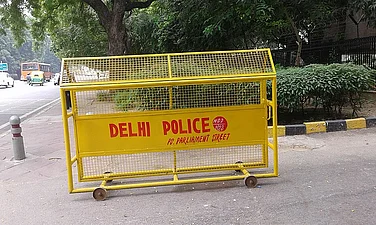As five states go for polling in November, the debate around caste census and OBC (Other Backward Class) categorisation grows stronger and assumes significance as caste has always been a dominant factor in fighting elections. With Bihar releasing the caste-census data on October 2, Gandhi Jayanti, a political debate has set alight a social and political debate in the country that also prepares itself for the General Elections 2024.
Following Bihar, several other states including Andhra Pradesh, Rajasthan, Odisha, Jharkhand, Maharashtra, and Tamil Nadu, have resonated with the need to conduct a caste census.
While a clutch of petitions were earlier filed in the Supreme Court challenging the legality of such a survey, the data is out there however. And with the elections around, more Opposition in other states have extended their support to the census that would press the central-ruling party, BJP, to explain why the same cannot be done nationally, for a fair representation of communities within the 27 per cent of reservation of the OBC. Experts feel that although the emotions over caste and sub-caste do not flow as much as they did during the time of the Mandal Commission, in the 1990s, the data of the census and the debate of equality based on sub-categorisation of OBC created a political storm that would reverberate for long ahead of the elections.
What have the states proposed in the run-up to the elections?
Last week, the Andhra Pradesh government said that the state would begin its caste census on November 15 for better services to the community. Andra Pradesh Minister for Backward Classes, C Srinivasa Venugopala Krishna said that the census would help in identifying the many underrepresented communities and apprise the society of information of these people.
A similar exercise was announced by Rajasthan two before the Election Commission of India announced the poll dates for the assembly election. In Rajasthan, reservation stands at 70 per cent for Scheduled Caste, Scheduled Tribe, OBC, Economically Weaker Section, Most Backward Caste (MBC), and to Gujjars, Banjaras, Gadia Lohars, Raikas and Gadarias under MBC.
With the Bihar government releasing its caste census report, opposition parties in Odisha demanded that the Naveen Patnaik administration release the report of the OBC survey conducted this year. Odisha Pradesh Congress Committee (OPCC) president Sarat Pattanayak also urged the state administration to conduct a caste survey and said that if the ruling BJD government fails to do so, the grand old party will undertake the exercise if it comes to power in the state next year.
In Maharashtra, Deputy Chief Minister Ajit Pawar batted for a "caste census" on the lines of the one conducted in Bihar by the Nitish Kumar government and said such a move will help find the exact population of all communities so that proportionate benefits can be given accordingly.
Meanwhile, Bahujan Samajwadi Party (BSP) chief Mayawati once again demanded a census of the OBCs in Uttar Pradesh and at the national level. "The anti-reservationists who deny this are the same casteist-minded people who continuously conspire to make the reservation of SC and ST categories inactive and ineffective and do not even fill the backlog of their reservation," she said.
Rohini Commission: Looking at the debate of OBC and its sub-categorisation
The debate around the sub-categorisation of the OBC has been a long hotbed. The OBC includes the backward and marginalised castes and communities which have not been included within SC and ST. OBCs have been generally identified on the basis of their occupation: cultivation of own land, tenant farming, agriculture labour, cultivation and selling of vegetables, fruits and flowers, cattle-rearing, washing of clothes, carpentry, blacksmith, oilseeds crushing, pottery, stone-cutting, etc. However, the idea of backwardness depending on occupation was never solely the ground to seek reservation for OBC, but their socio-economic data. The Bihar government, while revealing its caste-census data, decided to withhold the socio-economic data and experts argue that without the economic data, which would show how the various communities in the state have progressed or lagged behind, the caste numbers are useful just for politics.
In 2011, the Congress-led UPA 2.0 government conducted a socio-economic caste census exercise, the data for which was never revealed. While Congress raises the push for a nationwide caste census, during a rally in Bilaspur, Chhattisgarh, last month, Rahul Gandhi said, “Congress had conducted caste census in 2011. It has data of people of every caste, but Modi ji does not show that data to the people. This is one issue I spoke of before too. Only 3 out of 90 secretaries in the government of India are OBCs. The caste census will be an x-ray of India. With it, we will be able to find how many people belong to SC, ST, Dalit, and general categories," according to a report by Indian Express.
Marginalisation within OBCs has pressed the issue of subcategorisation, as it has been long debated that only the ‘upper caste’ among the 2,600 OBC communities in the central list has a significant representation in the 27 per cent quota of Central jobs that came with the implementation of the Mandal Commission recommendations more than 30 years ago. No sub-categorisation was made within this reservation.
Although two OBC commissions --- first, was constituted by Jawaharlal Nehru in 1953 and headed by Kaka Kalelkar, and the other, the B P Mandal Commission appointed in 1979 by Morarji Desai’s Janata government --- were formed, the first report was never discussed in the Parliament, while the second did not recognise sub-categorise within the 27 per cent reservation despite one opposing view of splitting the OBC into intermediate backward classes and depressed backward classes.
While individual states continued their own ways to assure equitable quota distribution among the OBC community, the debate went ongoing at the national until October 2, 2017, when the Rohini Commission was constituted by Justice G Rohini, former Chief Justice of Delhi High Court to examine the need of sub-categorisation. After 13 extensions, the Commission submitted its report to President Draupadi Murmu on July 31, early this year.
Although the data has not been made public yet, The Print reported that the commission had found around 200 religiously restricted entries in the central list of OBCs, where Hindus belonging to specific occupational communities were not given OBC status, unlike their Muslim counterparts.
The Commission was further tasked with recommending the correction of any repetitions, ambiguities, inconsistencies and errors of spelling or transcription, and working out the mechanism, criteria, norms and parameters in a scientific approach, for sub-categorization within such OBCs. However, the process the Commission adopted to undertake the sub-categorisation is yet to be known.




















.png?w=200&auto=format%2Ccompress&fit=max)





